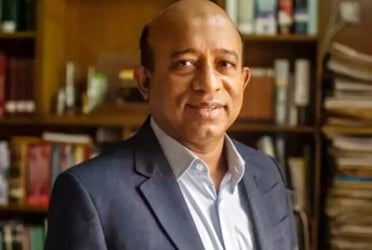Educated youth heading abroad for education and career opportunities, leaving behind lucrative jobs in the country.
Many are mastering the English language and seeking visas for advanced countries like Europe, America, Canada, and Australia. They're not only pursuing higher education but also settling in these nations after completing their studies, a trend reshaping the educational landscape and family dynamics.
Moreover, many professors and teachers from the country's universities are opting to establish themselves abroad for higher education, and the number of such internationally-going young people is increasing year by year.
In discussions with those who have gone abroad on student visas or are preparing to do so, it has been revealed that they are driven by the prospect of better opportunities, concerns about job scarcity despite their qualifications, economic instability, uncertainty about healthcare, lack of opportunities without corruption, distrust in the justice system, contaminated environments, and anxieties about their children's future.
According to a report by the UNESCO Institute for Statistics, over 40,000 Bangladeshi students go abroad for higher education each year. This number has been steadily increasing since 2015, with over 17,000 Bangladeshi students going to the United States alone in the past two years. Additionally, Bangladeshis are pursuing higher education in countries like Malaysia, Canada, Australia, the United Kingdom, Germany, Japan, India, and South Korea. Recently, there has been an increase in Bangladeshi students going to Denmark, Sweden, New Zealand, Cyprus, and Finland.
According to a survey by the Bangladesh Bureau of Statistics (BBS), it has been observed that in 2021, three individuals per thousand became foreign residents by leaving the country. This number has increased to 6.6 per cent in the past year.
Nasimul Ahsan, along with his wife, will embark on a journey to Finland for higher education on September 9th. He was working a good job at a private institution in the country. Regarding going to Finland, he said, 'Two years ago, after my daughter's death, I often thought, maybe I wouldn't have lost her if she had received proper medical treatment. Maybe the Creator didn't spare her life, but my father's heart doesn't want to accept that. It's only then I decided not to stay in this country anymore. There's no doubt about the healthcare and education system in Finland. The government is responsible for healthcare, and the government is responsible for the child's education. If you don't have a job, the government provides financial support. No one depends on anyone else. What else do you need to live a good life?'
At the beginning of next year, Muhitamim Naeem is moving to Canada with his wife. He has also received his visa. Currently, he is working at a non-governmental development organization in the country, earning a high salary. When asked about leaving his job and going to Canada, Naeem said, 'I have decided to go to Canada to advance my career. My aspirations are driven by the hope of giving the next generation a beautiful and prosperous life.'
Last May, Rakib Hasan left for the United States after completing his master's degree from Chittagong University. His desire is to settle in the United States after obtaining his degree.
Leaving behind a journalism job in the country, Bristi Dey is now teaching at a university in Germany, which is known for its name."
The pursuit of English language proficiency has become a common theme among young people planning to go abroad, as it is a key qualification for studying overseas. Many of these young adults, equipped with their degrees, find jobs in restaurants, hotels, hospitals, and supermarkets once abroad.
Prof Dr AK Azad Chowdhury, former Chairman of the University Grants Commission (UGC), told Bangladesh Pratidin, many people are going abroad due to unemployment. However, going abroad and establishing oneself there is not a bad thing. It's good for the individuals and for the country as well because they will send remittances back. But if all the talented individuals go abroad, it will cause significant damage to the country. The country needs innovation to move forward. The talented individuals need to come back. For this purpose, those who are going abroad should return to work in suitable jobs and receive respect according to their qualifications, whether in government or non-government sectors. Our education system is under question. Many people go to different countries with degrees but fail to secure good jobs there. Efforts should be made to improve the quality of education. Our universities need to be globally ranked. I was the Vice-Chancellor of Dhaka University when it was among the top-ranking universities. Unemployment is one of the reasons behind the mindset of highly educated individuals looking abroad for opportunities.
According to the International Labour Organization's report 'The Global Employment Trends for Youth 2022,' the youth unemployment rate in Bangladesh stands at 10.6%.
According to information from The Economist Intelligence Unit (EIU), out of every 100 bachelor's degree holders in Bangladesh, 47 are unemployed.
ActionAid Bangladesh and the South Asian Network on Economic Modeling (SANEM) report in a survey that a significant portion of Bangladesh's youth faces economic and social risks. Due to disparities and a lack of quality education, 78% of young people believe that pursuing education will not lead to job opportunities, and this figure rises to 90% among economically disadvantaged students.
A study conducted by the Bangladesh Institute of Development Studies (BIDS) reveals that 66% of students who have completed their education in colleges affiliated with national universities are unemployed.
@ The article was published on print and online versions of The Bangladesh Pratidin on September 6, 2023, and has been rewritten in English by Tanvir Raihan.





































































